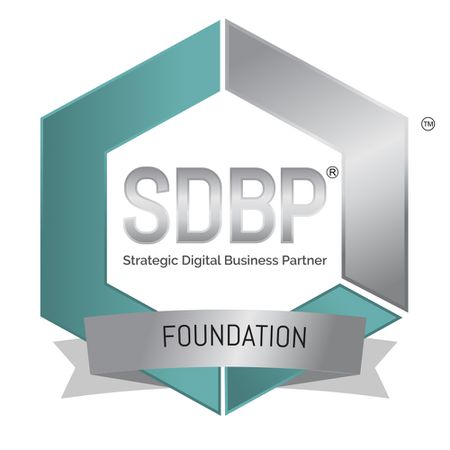
Another four letter acronym?
So what is the problem that we are trying to solve?
The goal of Strategic Digital Business Partnerships is to provide sustainable competitive advantage through better fulfilment of customer needs.
I think those companies who have managed to survive the latest bout of economic shocks have done so because of Digital technology and behind that, a way of working within the organisation. I have illustrated this in the past with Amazon.com and the rest of the high street retail industry. Whilst Coronavirus will have been the last nail in the coffin for many, the rot was already well established.
It may be the tools we use are "digital" in nature, but it's still people who make the technology work for the good of the organisation and society at large. However, the demands on our time and the bureaucracy we face mean that we often lose the opportunity to make the best decisions and make the best use of the technology we have available. In other words - we lose competitive advantage and we may be completely unaware of unfulfilled customer needs.
So there is still a competitive gap. What is the difference between organisations who are competitive and those who are not? I illustrate this with the Organisation Partner Maturity Model. People who work as "Reactive Partners" are not going to be able to grasp the competitive advantage but those who are "Strategic Partners" can.
How do we become strategic? It means a change in our behaviours, attitudes and activities across a broad range of roles. If the organisation culture is "reactive", then no matter how skilled an individual is, they are not going to be strategic. This simple point illustrates the fallacy of recruiting a role in order to plug a gap in the organisation, only for the successful candidate to become a cog enmeshed in the culture, effectively becoming part of the problem, rather than the solution.
The way forward.
The answer is in organisational change. Enabling your company to compete with successful digital businesses is a huge challenge. I believe that a powerful combination of training and coaching can help.
In addition, at the expense of being tribal, our training is not role-based but competency-based. I've learnt that whilst there is a strong collective force to associate with a role and learn how to be a better Product Manager or Customer Success Manager, the simple reality is the appreciation and application of these skills is cross-functional. Talent managers recruit for breadth and depth in skills and behaviours. If there is to be organisational change, many people in different roles need to be trained and coached.
We're different.
Let's take Massive Online Open Online Courses (MOOCs). The standard format is a video with perhaps a quiz and a comments section for each lesson. What I've learnt is that whilst people may register for a course, less than five per cent actually make any meaningful progress through the course. There is a problem of engagement.
On the other hand, let's take an in-person class where a tutor works through a thick slide deck with a limited set of exercises and discussion points. Whilst people stick through to the end, I've found that quite often the tutor may not be an experienced practitioner in the chosen subject so cannot relate practical examples to the application of the theory being discussed. There is a risk that people rush to learn the theory at the expense of understanding the context and application.
Whilst there are advantages and disadvantages for both options, we've taken the experience of implementing both to maximise one single outcome of the course:
"To feel sufficiently confident to implement the techniques described in the course to achieve the course outcome - such as Understand how technology can help and plan for the future" (Strategy Management)"
The opportunity for online video learning is to provide a source for building knowledge that can be referred to repeatedly. We adopt this format, however, we recognise that without practice and discussion whatever is learnt soon fades, so we go many steps further:
Exercises. We make sure that there are exercises together with tips from experienced practitioners who guide the delegate in applying the technique as part of online learning.
Coaching Webinars. We provide the opportunity to discuss with the expert real practical scenarios in the workplace, identify new challenges and suggest alternative perspectives on problems with our online coaching webinars.
Online Forum. We provide the opportunity to network and share challenges with other course delegates so that particular issues can be answered by other members through our exclusive online forum.
Exams and Rationales. We help people learn the behaviours and attitudes in addition to the skills through a role-based story segmented into 14 exams. This story takes the cut and thrust of a very real Digital Transformation and places people into this pressure cooker. How should they act? what should their response be to specific scenarios?
Talent managers can be assured then that a delegate holding the SDBP® Foundation certificate will be sufficiently confident to implement the techniques in their world of work.
No other advisory company goes as far as Baxter Thompson Associates do in helping people transform the way they work, meaning if you work with us, your organisational change programme maximises its chance of success.